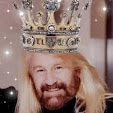Before James Dean moved into the Chateau
Marmont and made it a Hollywood landmark and
go-to spot for stars to get up to no good, there was the far more notorious, but now long-forgotten
Garden of Allah. The hotel’s ambrosial name certainly had no
reflection on its reputation as the never-ending house party on Sunset
Boulevard. F Scott Fitzgerald was among the many famous tenants of the
Garden, where he embarked on a love affair while Zelda was tucked away
in a sanitarium. Resident Marlene Dietrich liked to swim nude in what
was then Hollywood’s largest pool, and even the would-be President
Ronald Reagan stayed at the hotel, where he bedded so many women that he
once told a friend ‘I woke up one morning and I couldn’t remember the
name of the gal that I was in bed with.’


As you might have guessed, the Garden of Allah had no ties with the
religion of Islam, but rather to one of Hollywood’s first movie stars,
Russian silent film actress, Alla Nazimova. She acquired the 2.5 acre
property in West Hollywood in 1919 as her private residence, but as the
popularity of silent films began to wane with the introduction of
talking pictures, she was advised to convert the property into a
residential hotel and spared no expense in adding 25 Spanish style
villas around the original house and a swimming pool in the shape of the
Black Sea. She jokingly called her new venture “The Garden of Alla”,
(the ‘h’ would come later) in reference to the best-selling 1905 novel,
which inspired three Hollywood movies of the same name, one of which
even starred hotel resident, Marlene Dietrich.
Alla Nazimova
But Nazimova didn’t cut it as a hotel manager and within a year of
running the place, found herself in financial crisis and her career in
tatters. She sold off her interest in the property to new owners,
who normalized the spelling in the hotel’s name to “Garden of Allah”,
and after a brief hiatus from Hollywood and a failed stint on Broadway,
she became a tenant in her own hotel, renting Villa 24, where she lived
until her death in 1945.

While the hotel originally sold itself as a quaint village-like setting
for the famous away from tourists and autograph-seekers, Alla Nazimova’s
own lifestyle set the libertine tone of the establishment. The bohemian
actress was open about her sexual relationships with women long before
it was socially acceptable, and has been credited with originating the
phrase “sewing circle”– a discreet code for female orgies. Her parties
were legendary, even during the Prohibition years when liquor flowed
freely within the garden’s gates. The property had several entrances,
making it easy for Hollywood stars to sneak in their lovers. Sex
parties, drunken rages and hedonist indulgence was a common occurrence
at The Garden of Allah thanks to its roster of unconventional patrons.

This was before the days of the Beverly Hills mansions and luxurious
neighbourhoods that Hollywood stars would later call home. Many actors
tended only to come into town during production of the films they were
working on, and The Garden of Allah provided that short or long-term
escape from reality for those whose job it was to provide that escape
for everyone else.
Some stayed in between films, some stayed in between marriages– like
Humphrey Bogart, who was once attacked with a kitchen knife in his
Garden villa by his estranged wife, who had found him living there with
Lauren Bacall. Fellow residents gathered around the house to watch the
scene as Bacall escaped out the back door.
There was never a dull moment at the Garden. “It Girl” Clara Bow was
notorious for pushing hotel butlers off the diving boards and management
looked the other way while the original Tarzan actor was said to have
satisfied his numerous “Janes” in the hotel pool. One famous Broadway
actress answered her bungalow door naked while her pet monkey collected
telegrams from startled delivery boys. An inebriated American comedian
and writer, Robert Benchley, would often have himself moved in a
wheelbarrow between the villas’ endless parties.

The Garden of Allah being the last place you would deem suitable for a
writer to stay sober and create a disciplined life, also became one of
the final homesteads of F. Scott Fitzgerald in 1937. His friend Thomas
Wolfe wrote to him, “I’ll be damned if I’ll believe anyone lives in a
place called the Garden of Allah”. While carrying on a relationship with
his biographer and lover Sheilah Graham (who would also write a book
about the hotel, The Garden of Allah), Scott did actually manage to accomplish some of his last literary achievements there.
It’s also believed to be the last place Scott ever met Ernest Hemingway,
another resident of the Garden during his little-known stint in Los
Angeles trying to promote his documentary on the Spanish Civil War. Of
their last meetings, Fitzgerald said: “I talk with the authority of
failure–Ernest with the authority of success. We could never sit across
the table again.”
Walking from villa to villa, you might hear the clack of Fitzgerald’s
typewriter before moving on to the sound of jazz king Benny Goodman or
singer Eartha Kitt practising for their next gigs. Frank Sinatra met his
future wife Ava Gardner there and stayed in adjoining bungalows.
Despite the debauchery and the scandal, the Garden was also an
unlikely creative haven, confirmed by the long list of iconic names who
chose to stay there. Orson Welles, Buster Keaton, the Marx Brothers,
Greta Garbo, Ginger Rogers and Laurence Olivier– it’s easier to say who
didn’t check in at the Garden rather than who did.
In later years, drugs became the poison of choice at the Garden of
Allah, and not long after Marilyn Monroe and Jayne Mansfield could be
found on the sunken dancefloor in a haze of cannabis smoke, the hotel
had become a rather seedy scene. Prostitutes were regular visitors to
the bar, villas were more frequently burgled and even the mob was
rumoured to be sending in their molls to seduce, trap and blackmail
celebrities.
Newer stars in Hollywood like James Dean and Montgomery Clift were
choosing to stay at the nearby Chateau Marmont instead. As the City of
Los Angeles was expanding, soon enough, the real estate the Garden was
built on became more valuable as commercial property than the hotel
itself.
In 1959, finance man Bart Lytton, president of Lytton Savings and Loan,
announced that he had purchased the Garden of Allah Hotel and intended
to raze it to make way for a new main branch for his bank. He offered to
throw one last party to bid farewell to The Garden of Allah and
attendees came costumed as old-time stars in a nod to its early history.
Alla Nazimova’s experimental 1923 silent film
Salomé was shown on
a large poolside screen, and from the looks of photographs taken on the
night, guests certainly made sure the hotel lived up to its rather
messy reputation. Before the bulldozer came in, an on-site auction
emptied the hotel of all its furnishings, fixtures and oddities for
souvenir hunters. And just like that, Hollywood’s most notorious hotel
house party was gone without a trace.
Today, the site boasts a strip mall, and a bank branch. For a few years,
Lytton kept a model of the hotel on display outside the bank, which
eventually disappeared for about 40 years. It then resurfaced in 2010
when a local hairstylist, David Meyers, who was looking to lease a shop
space in the remodeled Lytton centre, found it covered in dust.
Tourist postcard of Alla Nazimova's mansion
which would become the notorious Garden of Alla
Now go make something beautiful!
´¨)
¸.•´¸.•*´¨) ¸.•*´¨)
(¸.•´ (¸.•´? Tristan
Click on the above image to read a roster of
the Hollywood royalty and elite who were
guests and residents at The Garden of Allah
Such fun!
Aerial photo showing The Garden of Allah main mansion and
various surrounding 'villas' and bungalows
One of the courtyards at The Garden of Allah
The notorious swimming pool at The Garden of Allah -
known not only for the lascivious behavior there,
but for being the largest swimming pool in Hollywood at the time.





















































































































